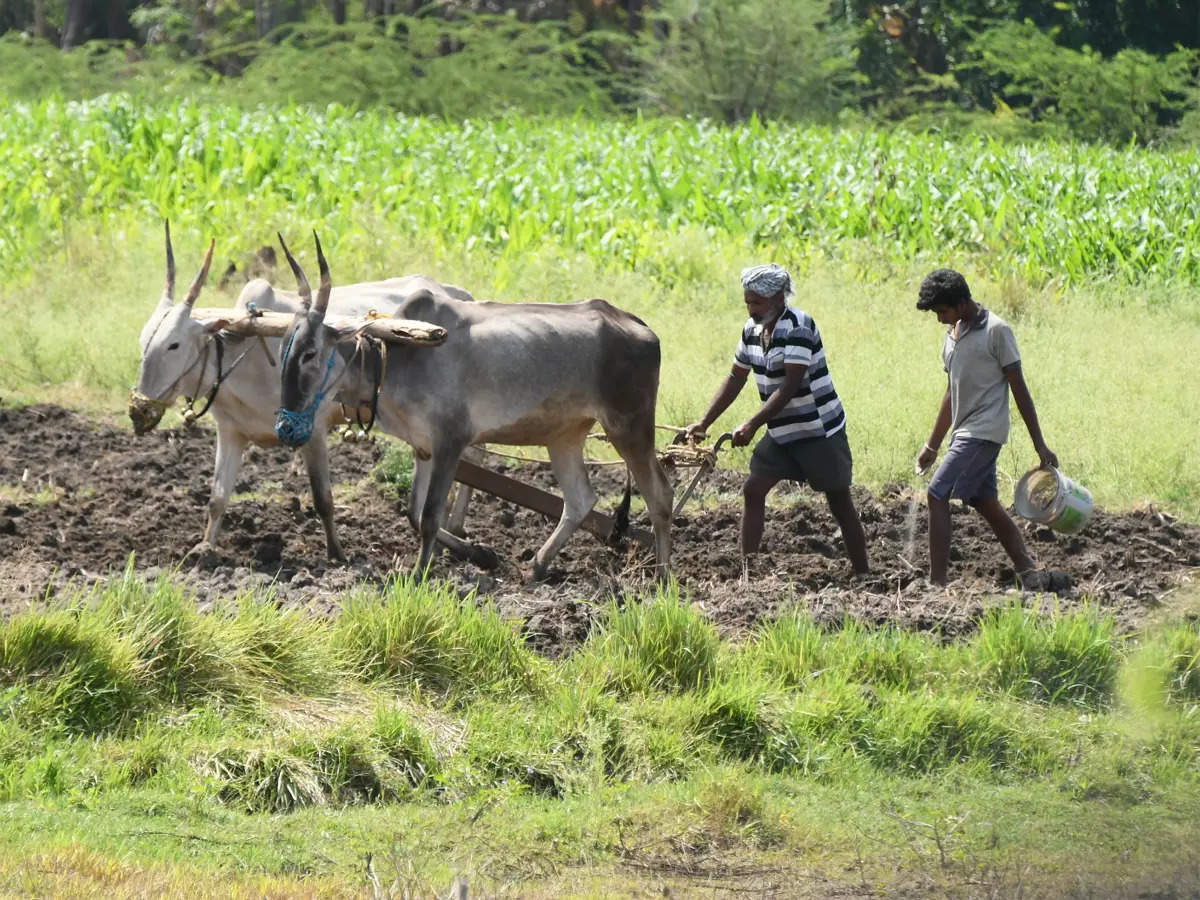
[ad_1]
It stated that consciousness amongst farmers needs to be elevated about adopting water-saving applied sciences similar to drip irrigation, laser land levelling, coaching on water-efficient strategies and precision agriculture to enhance water use effectivity.
It additionally steered ending free electrical energy for agriculture and introducing water pricing mechanisms that may discourage overuse and encourage conservation, in addition to educating farmers concerning the long-term penalties of unsustainable practices.
These suggestions assume significance as farmers in some states are protesting over their calls for, which embody a authorized assure for minimal help worth (MSP) for crops and farm debt waiver.
The MSP on rice and wheat and free electrical energy has made rising water-intensive paddy artificially cheaper, it stated, including this unfairly drawback eco-friendly, naturally grown paddy that depends on rain or canal water.
“We have to usher in Inexperienced revolution 2.0 which might primarily be restoring crop combine that existed Pre Inexperienced revolution 1.0. We would not have some other possibility,” GTRI Founder Ajay Srivastava stated. Simply two crops, paddy and wheat, account for round 90-95 per cent worth of complete MSP purchases and the utmost procurement of paddy is finished in states like Punjab and Haryana. “Paddy, a water-intensive crop, consumes 2-3 instances extra water than various crops like maize or pulses. Each kilogram of paddy produced in Punjab consumes about 800-1,200 litres of water. Usually Punjab shouldn’t develop water-intensive paddy,” he stated.
Paddy cultivation accounts for over 70 per cent of groundwater withdrawal and over 90 per cent of Punjab’s agricultural water comes from tube wells, and the variety of lively wells has elevated exponentially in latest many years.
He stated that because of this, the water desk in Punjab is declining at an alarming charge of 0.4 metres per yr, with some areas experiencing drops of as much as 1 metre yearly.
Farmers, incentivised by free electrical energy for tube wells, typically lack the motivation to preserve water, additional exacerbating the disaster.
“The MSP and free electrical energy schemes disadvantages environmentally sustainable, naturally grown paddy utilizing rain or canal water by making water-intensive paddy artificially aggressive,” the report stated.
Additional, on the demand of protesting farmers that India ought to withdraw from the WTO (World Commerce Organisation), the GTRI stated that it isn’t possible, despite the fact that few provisions of WTO’s settlement on agriculture (AoA) are discriminatory.
“India has efficiently defended its place on the WTO, holding its native MSP programme unaffected and sustaining excessive tariffs on import of agricultural produce,” it stated.
The US and different nations argue that India’s MSP help for wheat and rice exceeds the utmost 10 per cent worth help permissible below the settlement. In 2020-21, India has reported its worth help at about 15 per cent, however the US claims the help was 93.4 per cent.
This discrepancy arises from the AoA’s outdated technique of calculating subsidies. It calculates subsidy by evaluating the MSP not with the present market worth however with the export worth from 1986-89, often called the reference interval.
Moreover, AOA considers the entire manufacturing for calculation, not simply the amount purchased below MSP.
Srivastava stated that every one it is a built-in design defect of the AOA that goes in opposition to India.
India received a reprieve from stress throughout the WTO’s 2013 Bali Ministerial Convention, which adopted a ‘peace clause’ that enables India to proceed with the MSP programme below strict circumstances.
Though the Bali determination supplied some aid, it’s restricted and has strict transparency necessities.
India and different creating nations are advocating for a everlasting resolution.
This may stay essentially the most vital subject for India on the WTO’s thirteenth ministerial convention assembly in Abu Dhabi, which begins from February 26.
(Now you can subscribe to our Financial Instances WhatsApp channel)








